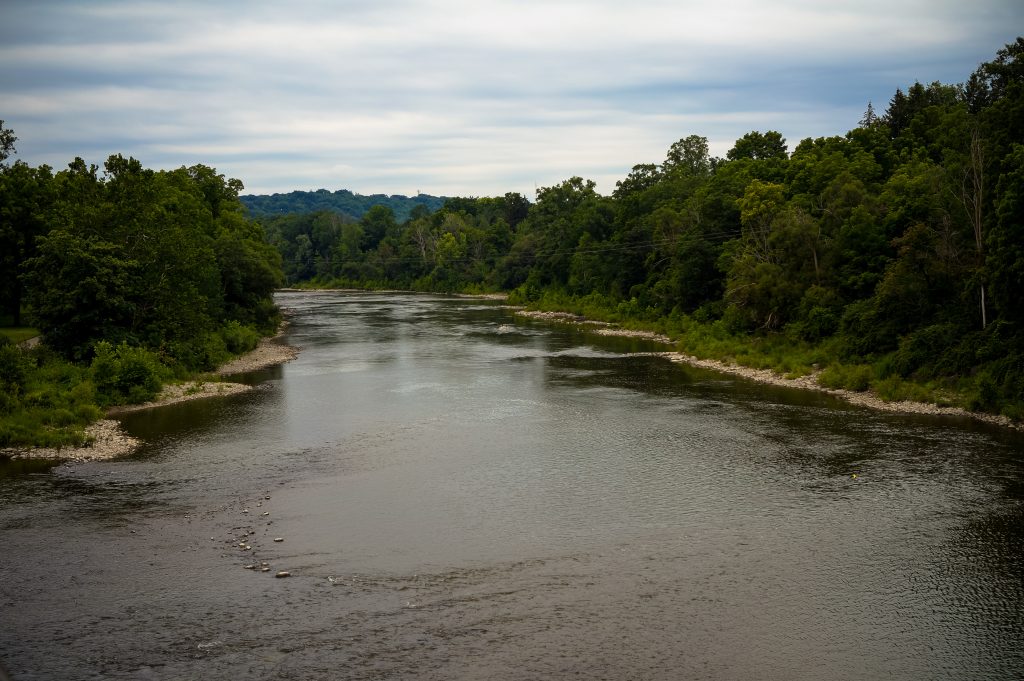Land Acknowledgement

As we reflect upon this image of Deshkan Ziibiing (Antler River), known as the Thames River to settlers on the London Township and Sombra treaty lands, we realize the education we had as children growing up in this region was disconnected from the land and its natural resources. It has been through First Nations cultural teachings, through listening to stories, and through unlearning the colonial version of history that we have begun to understand the value of the lands where we live, teach, and learn. We continue to open our minds and our hearts to different ways of knowing and being on these lands with a commitment to disrupting our colonial ways of thinking to share in the responsibility we have in our work with children and families to move towards Truth and Reconciliation.
We acknowledge and honour the Anishinaabe, Lotinuhsyuní and Lenape people of southwestern Ontario as the traditional owners and custodians of the lands and waterways where Fanshawe College is located. Fanshawe celebrates the continuous living cultures of the original inhabitants of Canada and acknowledges the important contributions Indigenous peoples have and continue to make in Canadian society. The College respects and acknowledges the Indigenous students, staff, Elders and Indigenous visitors who come from many nations (Fanshawe College, 2023).
As settler authors of this textbook we want to acknowledge and value the privilege we have to be writing and creating educational content on these lands. We continue our learning journey about the true history of this region in hopes that we can move towards Reconciliation. We acknowledge as settlers it is not our decision to determine whether an action is Reconciliation. It is our hope that non-Indigenous students reading this text will take time to read the Indigenous Acknowledgement and Welcome from Fanshawe College (2023). We believe a healthy foundation for working with children and families must be built on knowledge of the history of the lands where we will be residing, learning, and collaborating.
Call to Action 62. ii. We call upon the federal, provincial, and territorial governments, in consultation and collaboration with Survivors, Aboriginal peoples, and educators, to: Provide the necessary funding to post-secondary institutions to educate teachers on how to integrate Indigenous knowledge and teaching methods into classrooms (TRC, 2015).
Please read Fanshawe’s Indigenous Acknowledgement and Welcome message before reading the textbook content.
Additional Resources
References
Indigenous acknowledgement and welcome. Fanshawe College. (2022, September 26). https://www.fanshawec.ca/students/support/indigenous-learning/institute-of-indigenous-learning/indigenous-acknowledgement
TRC. (2015). Truth and reconciliation commission of Canada: Calls to action. calls_to_action_english2.pdf (gov.bc.ca)

